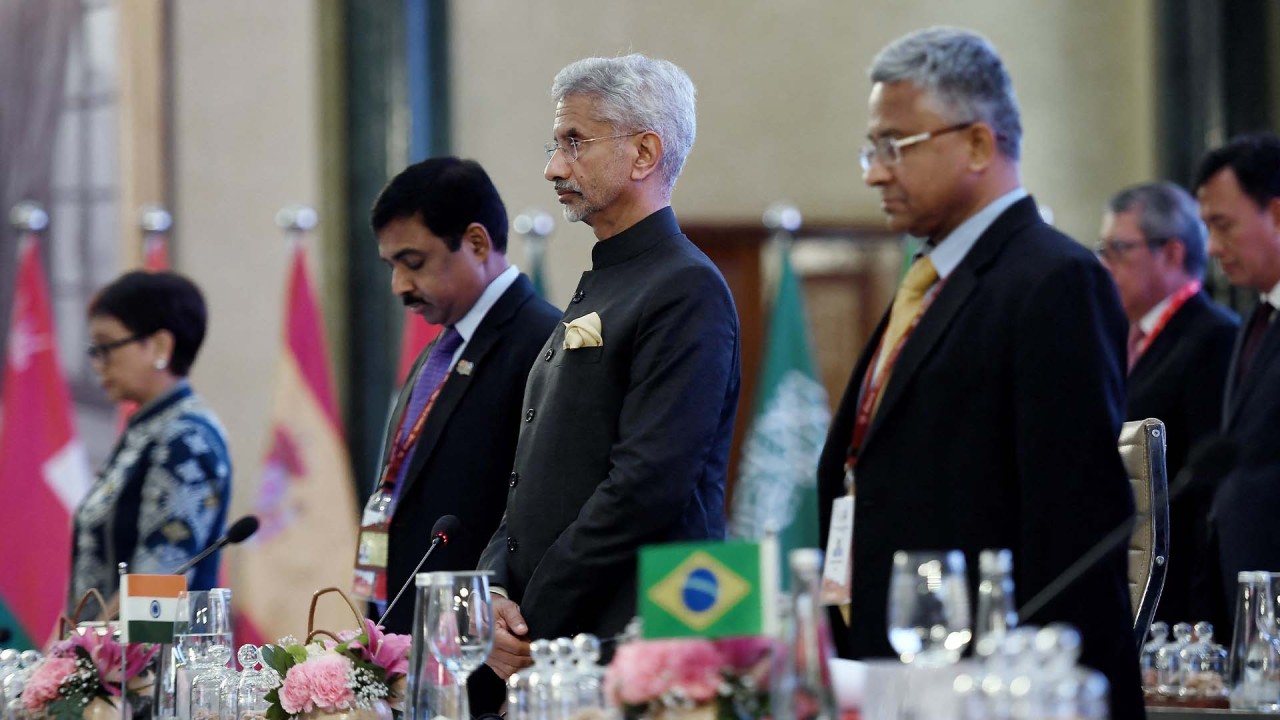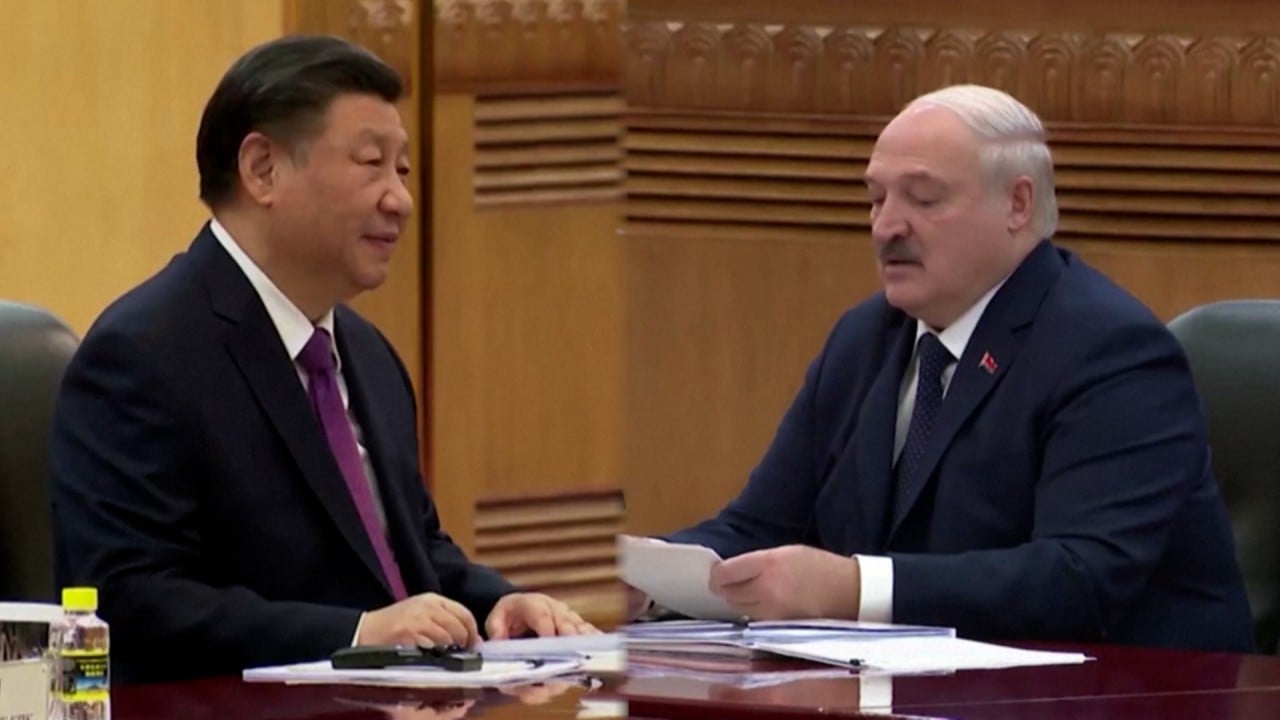
Ukraine war: Nato chief warns Bakhmut may fall in ‘coming days’
- Stoltenberg’s remarks come as the Wagner group claims to have captured the eastern bank of the town devastated in the longest battle since Moscow invaded
- EU ministers plans to ramp up defence production and rush ammunition to Ukraine received a lukewarm response from Ukrainian Defence Minister Oleksii Reznikov
Nato Secretary General Jens Stoltenberg warned on Wednesday that the eastern Ukrainian city of Bakhmut may fall into Russian hands in the coming days following months of intense fighting.
His remarks come as Russia’s Wagner mercenary group, which has spearheaded the attack on Bakhmut, claimed to have captured the eastern bank of the industrial town that has been devastated in the longest battle since Moscow invaded.
In Stockholm, EU ministers were discussing plans to ramp up defence production and rush ammunition to Ukraine as it burns through thousands of howitzer shells each day.
Wagner chief and Kremlin ally Yevgeny Prigozhin said on social media Wednesday that his forces “have taken all of the eastern part of Bakhmut”, a salt-mining town with a pre-war population of just over 71,000.
The intense fighting around Bakhmut has been the longest and bloodiest in Russia’s more than year-long invasion, which has devastated swathes of Ukraine and displaced millions of people.
“What we see is that Russia is throwing more troops, more forces and what Russia lacks in quality they try to make up in quantity,” Stoltenberg told reporters in Stockholm on the sidelines of an EU defence ministers meeting.
“We cannot rule out that Bakhmut may eventually fall in the coming days,” the head of the US-led military alliance said, adding that “this does not necessarily reflect any turning point of the war”.
Ukrainian President Volodymyr Zelensky warned in an interview with CNN what could happen if Bakhmut falls to Russian forces.
“We understand that after Bakhmut, [Russian forces] could go further” and attack nearby cities in the Donetsk region, he said in an interview set to air on Wednesday.
“They could go to Kramatorsk, they could go to Sloviansk, it would be an open road for the Russians after Bakhmut to other towns in Ukraine, in the Donetsk direction,” Zelensky said.
Russian Defence Minister Sergei Shoigu told military officials during a televised meeting on Tuesday that taking control of the city would allow for “further offensive operations” in eastern Ukraine.
Prigozhin estimated the day before that between “12,000 and 20,000” Ukrainian troops were still defending the town.
Zelensky told CNN that his armed forces were resolved to stay in Bakhmut.
“Of course, we have to think about the lives of our military. But we have to do whatever we can whilst we’re getting weapons, supplies, and our army is getting ready for the counteroffensive.”

Zelensky on Wednesday hosted UN chief Antonio Guterres in Kyiv as he makes his third visit to Ukraine since Russia’s invasion.
In a statement following the talks, Guterres underscored the importance of extending an expiring deal that has allowed Ukraine to export its grain.
“I want to underscore the critical importance of the rollover of the Black Sea Grain Initiative on 18 March,” Guterres said.
Also on Wednesday, EU plans to supply Ukraine with €1 billion (US$1.05 billion) in new ammunition received a lukewarm welcome from Ukrainian Defence Minister Oleksii Reznikov.
“We need more,” said Reznikov, describing the move from the European Union as “not enough”. He added that Ukraine needs 1 million rounds of artillery shells, costing around €4 billion.
About 90,000 to 100,000 shells per month would be needed to “be ready to deter enemies” and start counteroffensives, he said, arriving at a meeting of EU defence ministers in Stockholm.
Reznikov was reacting to a proposal from EU foreign policy chief Josep Borrell to provide the bloc’s member countries with an additional €1 billion to incentivise joint purchases and swift ammunition deliveries to Kyiv.
The money would come in addition to the €3.6 billion in military aid the EU has provided so far.
“Let’s be realistic and pragmatic”, Borrell said in Stockholm, commenting on a €4-billion figure previously put forward by EU member Estonia. “Money doesn’t come from the sky”.
He called to focus on “practical realities” and available resources, instead of “good wishes”.
German Defence Minister Boris Pistorius made similar comments, stressing that funds were “not the main problem in such matters” but instead ensuring Ukraine got the right practical support.
The difficulties in providing Kyiv with needed artillery shells has highlighted production challenges facing the European defence industry.
EU Internal Market Commissioner Thierry Breton called on Europe’s defence companies to adapt to the high-intensity conflict in Ukraine and move to “a war economy” in media comments ahead of the meeting.
Breton said successfully ramping up defence production in the EU would be essential to allow member states to replenish their own stockpiles and continue supplying Ukraine.
“We need to do this both in parallel,” he said.
Helping defence companies access private finance as well as EU funding to expand production capacity to meet increased demand is one of the commissioner’s aims.
Breton identified the joint purchase by EU countries of large quantities of 155-millimetre artillery shells for Ukraine as one potential project for such a public-private financing mechanism.

.png?itok=arIb17P0)


